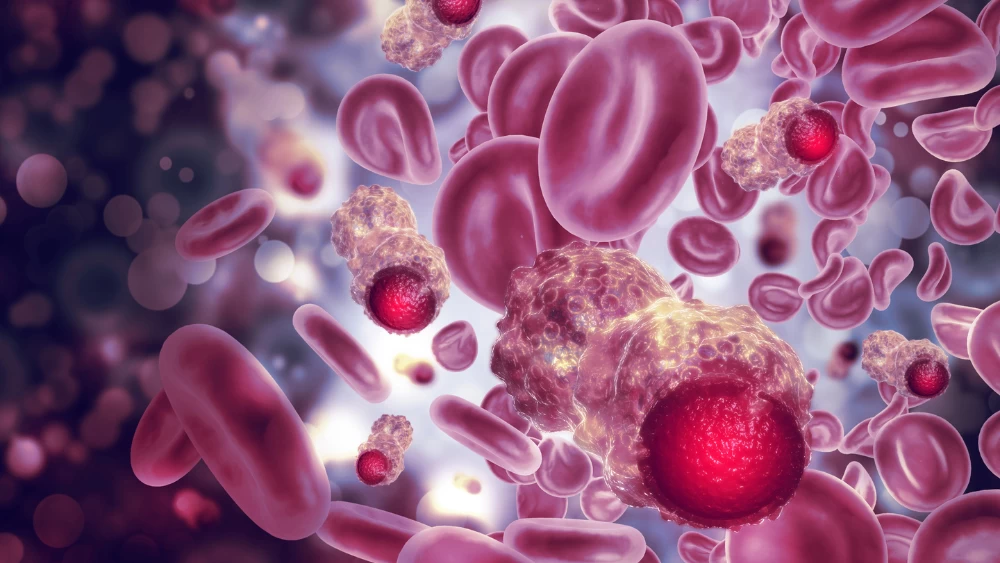
- 6th March 2023
Table of Contents
- Introduction
- It has bioactive compounds that are good for you
- Maybe it'll make your brain work better
- Boosts the body's fat-burning mechanisms
- Antioxidants may reduce the danger of developing certain cancers
- Possible anti-aging benefits for the brain
- It has the potential to lessen the effects of bad breath
- Could potentially help avoid developing type 2 diabetes
- May lower the risk of cardiovascular disease
- Could possibly aid in weight loss
- Could add years to your life span
- Conclusion
Introduction
Green tea is a type of tea made from the leaves of Camellia sinensis, which is native to East Asia. It has been consumed for centuries and is known for its numerous health benefits. Green tea contains antioxidants called catechins, which have been shown to have anti-inflammatory and anti-cancer properties. In addition, it contains caffeine and L-theanine, which are known to boost brain function and improve mood. Other potential health benefits of green tea include reducing the risk of heart disease, diabetes, and stroke, as well as improving cholesterol levels and aiding in weight loss. Green tea is also a good source of hydration and can contribute to overall health and well-being. In this article, we will explore the many health benefits of green tea and how it can improve your health and quality of life
It has bioactive compounds that are good for you
Green tea's benefits extend far beyond those of a simple hydrator. Green tea is a popular beverage because it is packed with beneficial compounds from the green tea plant. Tea contains a high concentration of polyphenols, a class of beneficial natural compounds that have been linked to a variety of health benefits including reduced inflammation and increased cancer resistance. Caffeine-blocking catechin known as epigallocatechin-3-gallate is found in green tea (EGCG). Catechins, a type of natural antioxidant, can protect cells from damage and have other useful effects. These compounds have been shown to inhibit the production of free radicals, thereby preventing damage to cells and molecules. This class of free radicals has been linked to ageing and numerous diseases. Among the many powerful compounds in green tea, EGCG stands out. Its therapeutic potential in treating a wide range of diseases has been investigated. Some research suggests that it is one of the primary compounds responsible for green tea's therapeutic effects. The trace minerals found in green tea are beneficial to health in very small amounts. If you're going to drink green tea, pick one of the better brands because some of the cheaper ones may have too much fluoride. However, the advantages remain greater than the disadvantages, even if you go with a less expensive brand.
Maybe it'll make your brain work better
Green tea may do more than keep you awake; it may also improve cognitive performance. Caffeine, a well-known stimulant, is the main ingredient. Not as much as coffee, but enough to give you a boost without the jitters. Caffeine works in the brain by inhibiting the effects of adenosine. Neuronal activity and levels of reward-related neurotransmitters like dopamine and norepinephrine are boosted as a result. Caffeine boosts mood, vigilance, reaction time, and memory, as has been repeatedly demonstrated in scientific studies. Green tea contains several compounds that stimulate the central nervous system, and caffeine is just one of them. L-theanine, an amino acid found in it, is able to penetrate the brain's blood-brain barrier. There is evidence that L-theanine can reduce anxiety by enhancing the effects of the inhibitory neurotransmitter GABA. The amount of dopamine in the brain and the rate at which it generates alpha waves are both boosted. There may be synergistic effects between caffeine and L-theanine, according to research. Thus, the two together can have synergistic effects on enhancing cognitive performance. Green tea contains L-theanine and probably only a trace amount of caffeine, so it may provide a different kind of high than coffee. Green tea seems to provide a more consistent source of energy and enhance productivity, according to many users.
Boosts the body's fat-burning mechanisms
Green tea is a common component of dietary supplements marketed as fat burners. Because green tea has been shown to increase fat burning and boost metabolic rate in studies. A study with 10 healthy men found that taking green tea extract led to a 4% increase in energy expenditure. Another study found that compared to a placebo group, those who took green tea extract had a 17% increase in fat oxidation. Some studies on green tea, however, do not show any increase in metabolism, suggesting that the effects may depend on the person and the study design. Caffeine's ability to release stored fatty acids from fat tissue and use them as fuel may also contribute to its beneficial effects on athletic performance. Caffeine may increase physical performance by 11-12%, according to two meta-analyses.
Antioxidants may reduce the danger of developing certain cancers

Unchecked cell growth is the underlying cause of cancer. One of the leading killers worldwide. Oxidative damage has been linked to chronic inflammation, which in turn has been linked to a variety of chronic diseases and cancers. Protection from oxidative stress is aided by antioxidants. Green tea has some of the most potent antioxidants of any beverage. Green tea compounds have been linked to a lower risk of cancer in several studies, including:
- Breast Cancer: Women who drank the most green tea had a 20-30% lower risk of developing breast cancer, one of the most common cancers in women, according to a meta-analysis of observational studies.
- Prostate Cancer: An earlier study found that men who drank green tea were less likely to develop advanced prostate cancer.
- Colorectal Cancer: Results from a meta-analysis of 29 studies showed that green tea drinkers had a 42% lower risk of developing colorectal cancer.
Green tea drinkers have been shown to have a lower risk of developing multiple types of cancer in observational studies, but more high-quality research is needed to confirm these effects.
If you want the full range of health benefits from your tea, skip the milk. Research suggests it may lessen the health benefits of certain teas by inhibiting their antioxidants.
Possible anti-aging benefits for the brain
Green tea has been shown to boost cognitive performance in the here and now, and there's some evidence that it may also help protect the brain as you get older. Alzheimer's disease is the most common form of dementia in older adults and the most common neurodegenerative disease overall. Dopamine-producing neurons in the brain are killed off in Parkinson's disease, another common neurodegenerative disorder. The catechin compounds in green tea have been shown to have protective effects on neurons in test tubes and animal models, suggesting that they may reduce the risk of dementia.
It has the potential to lessen the effects of bad breath
Catechins, which are present in green tea, are helpful for maintaining healthy teeth and gums. Catechins have been shown to inhibit bacterial growth in test tubes, which could mean they reduce the likelihood of infection. Oral streptococcus mutans is quite common. It promotes the growth of plaque, the main cause of cavities and tooth decay. Recent research has shown that green tea's catechins can inhibit the growth of oral bacteria in the lab, but there is no proof that ingesting green tea has the same effect. However, some research suggests that green tea can help with bad breath.
Could potentially help avoid developing type 2 diabetes
This type of diabetes has been on the rise for decades. One in ten Americans now suffer from this disease. In people with type 2 diabetes, the body is either resistant to the effects of insulin or cannot produce enough of the hormone to keep blood sugar levels from rising to dangerous levels. Green tea has been shown in some studies to increase insulin sensitivity and decrease blood sugar levels. Green tea drinkers in Japan were found to have a 42% lower risk of developing type 2 diabetes, according to a single study . There was an 18% reduction in diabetes risk among tea drinkers, as reported by a meta-analysis of 7 studies involving a total of 286,701 people.
May lower the risk of cardiovascular disease
Most deaths occur from cardiovascular diseases like heart attacks and strokes. Many of the major risk factors for these diseases, such as high total cholesterol and low "good" HDL cholesterol, may be reduced by drinking green tea, according to studies. LDL particles are protected from oxidation thanks to green tea's ability to increase the blood's antioxidant capacity, which is one of the mechanisms by which cardiovascular disease develops. Consumption of green tea is associated with up to a 31% lower risk of death from cardiovascular disease, which may not come as a surprise considering the positive effects on risk factors.
Could possibly aid in weight loss
Green tea's ability to temporarily increase metabolic rate suggests it may aid in weight loss. A number of studies suggest that drinking green tea can aid in fat loss, particularly in the abdominal region. In one study, 240 obese people participated in a randomised controlled trial lasting 12 weeks. Significant reductions in body fat percentage, body weight, waist circumference, and belly fat were seen in the green tea group compared to the control group. Researchers need to conduct more studies to confirm this effect, as some don't show a statistically significant increase in weight loss with green tea.
Could add years to your life span
It stands to reason that green tea's potential to lengthen one's life is based on the fact that it contains compounds that show promise as potential cancer and heart disease protectors. For 11 years, researchers tracked the lives of 40,530 adult Japanese participants. People who consumed 5 or more cups of green tea per day had a significantly lower risk of dying during the study period:
- The overall death rate is lower by 23% for women and 12% for men.
- Women see a 31% decrease and men see a 22% decrease in their risk of dying from heart disease.
- Reduced mortality from stroke by 42% in women and 35% in men
- Green tea drinkers were 76% less likely to die during the 6-year study period, according to another study involving 14,001 Japanese adults aged 60 and up.
Conclusion
Multiple studies have suggested health benefits from drinking green tea. Making green tea a regular part of your life has been linked to improved mental health, weight loss, and protection from chronic disease.














